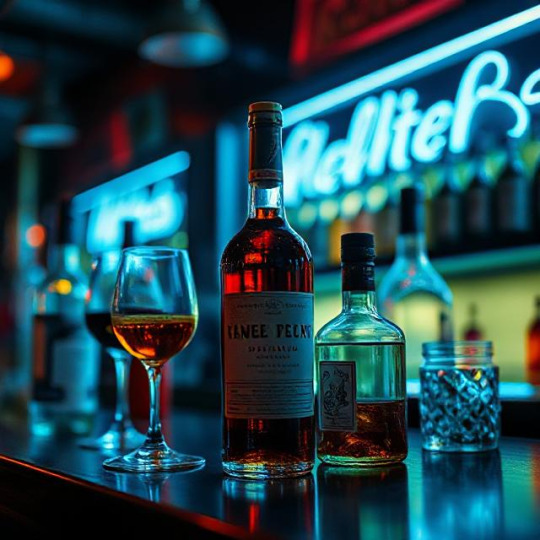#SensibleDrinking
Explore tagged Tumblr posts
Text
The Ethics of Alcohol: Should Society Control Consumption?

The Drink That Divides
It's Friday night, and you're out with friends. There's music a-pumping, drinks a-flowing, and singularly good time all around. And yet, on the tip of your tongue, the one question remains: should alcohol consumption be a thing controlled by society, or should it be left to individual responsibility? After all, alcohol is a social lubricant, and then again, public health. It makes a multi-billion dollar industry, yet it is also a source of addiction, crime, and myriad health issues. So where shall we draw the line?
A Brief History of Alcohol and Control
Alcohol has existed for thousands of years. The construction of beer was in ancient civilizations; wine was fermented; spirituous drinks were drunk in celebration. But where there is alcohol, there are regulations. The Prohibition was one of the greatest attempts of the U.S. towards control of alcohol consumption from the years 1920 to 1933—and we all know where that took us—with speakeasies, bootleggers, and, among other things, organized crime. Lesson learned? Total prohibition simply doesn't work.
However, this clearly doesn't mean that alcohol should be a no-holds-barred thing. Many countries impose controls for regulations concerning drinking age, taxation, and advertising. Some set up government-run liquor stores, while others take a hands-off approach. The big question is: what is the best method?
The Case for Controlling Alcohol Consumption
Public Health Concerns Alcohol is linked to problems concerning liver disease, heart problems, mental health issues, and even cancer. Excessive drinking strains healthcare systems and costs billions in medical care and lost productivity. Would restricting access to alcohol reduce these problems?
Social and Family Impact It is no secret that alcohol abuse destroys families. Domestic violence, child neglect, and financial problems often stem from excessive drinking. Should society intervene with strict regulation to stem the tide of this damage?
Crime and Safety A large proportion of crimes, especially violent ones, are committed under the influence of alcohol. Every year, thousands are killed in DUI accidents. Should alcohol become harder to access, would crime rates decline?
Prevention of Addiction Some people drink in moderation and others do not. Unlike illegal drugs, alcoholism is highly accepted. Should the government intervene to protect the rights of individuals that pose a risk?
The Case for Personal Choice and Self-Will
Freedom of Choice Adults should make decisions by themselves, right? If one wants to have a drink, why should the government interfere? People make ill choices all the time; should alcohol be treated differently?
Regulation-Not Always That Effective History shows that strict liquor laws are often counterproductive. If liquor is made too restrictive, black markets succeed. People are going to find a way to drink, either legally or illegally. So, regulation doesn't really help?
Cultural and Economic Value Alcohol plays a role in social and cultural platforms from toasts at weddings to celebrations during festivals. The alcohol business employs people and generates taxes. Over-regulation may damage businesses as well as social customs.
Slippery Slope of Government Control If society controls alcohol, what's next? Should the government also regulate sugars Coffee Fast food? Where do we draw the line between good health and personal freedom?
The Middle Road
Maybe the real solution is not outlawing alcohol or letting it run wild, but providing it with some balance. Here are some suggestions:
Effective enforcement of existing laws: Enforce the laws against underage drinking, DUI, and all other alcohol-related crimes.
Better education: Rather than taking a position of saying "don't drink," it would be more appropriate to teach responsible drinking.
Higher taxes on heavy drinking: Many countries impose higher taxes on strong drinks or for excessive drinking, which usually serves as a curbing factor.
Better help for addiction: More funding to help alcohol and drug rehab and mental health support can help people struggling with alcohol abuse.
Conclusion: A Toast to Thoughtful Drinking
So is society to take control over alcohol? The answer is not an easy one. Alcohol is woven into the culture, yet it poses certain perils. Perhaps the answer is neither prohibition nor total coolness, but rather an environment in which individuals are educated, supported, and given incentives to drink sensibly.
Next time you lift a glass, think of the effects of that certain drink not only on yourself but also on society. For while the ethical value of alcohol is probably one debate that will never find compulsion, one thing is evident: how society deals with alcohol does literally say something about society itself.
#AlcoholEthics#PublicHealth#DrinkResponsibly#AlcoholRegulation#PersonalFreedom#SocialImpact#AlcoholAndSociety#AlcoholAddiction#ProhibitionHistory#AlcoholDebate#SensibleDrinking#CulturalImpact#HealthAndFreedom#EthicalConsumption#AlcoholControl
1 note
·
View note